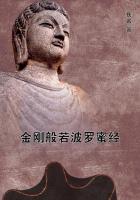It sometimes happens that men make amusement the end, for the end probably contains some element of pleasure, though not any ordinary or lower pleasure; but they mistake the lower for the higher, and in seeking for the one find the other, since every pleasure has a likeness to the end of action. For the end is not eligible for the sake of any future good, nor do the pleasures which we have described exist for the sake of any future good but of the past, that is to say, they are the alleviation of past toils and pains.
And we may infer this to be the reason why men seek happiness from these pleasures.
But music is pursued, not only as an alleviation of past toil, but also as providing recreation. And who can say whether, having this use, it may not also have a nobler one? In addition to this common pleasure, felt and shared in by all (for the pleasure given by music is natural, and therefore adapted to all ages and characters), may it not have also some influence over the character and the soul? It must have such an influence if characters are affected by it. And that they are so affected is proved in many ways, and not least by the power which the songs of Olympus exercise; for beyond question they inspire enthusiasm, and enthusiasm is an emotion of the ethical part of the soul. Besides, when men hear imitations, even apart from the rhythms and tunes themselves, their feelings move in sympathy. Since then music is a pleasure, and virtue consists in rejoicing and loving and hating aright, there is clearly nothing which we are so much concerned to acquire and to cultivate as the power of forming right judgments, and of taking delight in good dispositions and noble actions. Rhythm and melody supply imitations of anger and gentleness, and also of courage and temperance, and of all the qualities contrary to these, and of the other qualities of character, which hardly fall short of the actual affections, as we know from our own experience, for in listening to such strains our souls undergo a change. The habit of feeling pleasure or pain at mere representations is not far removed from the same feeling about realities; for example, if any one delights in the sight of a statue for its beauty only, it necessarily follows that the sight of the original will be pleasant to him. The objects of no other sense, such as taste or touch, have any resemblance to moral qualities; in visible objects there is only a little, for there are figures which are of a moral character, but only to a slight extent, and all do not participate in the feeling about them. Again, figures and colors are not imitations, but signs, of moral habits, indications which the body gives of states of feeling. The connection of them with morals is slight, but in so far as there is any, young men should be taught to look, not at the works of Pauson, but at those of Polygnotus, or any other painter or sculptor who expresses moral ideas. On the other hand, even in mere melodies there is an imitation of character, for the musical modes differ essentially from one another, and those who hear them are differently affected by each. Some of them make men sad and grave, like the so-called Mixolydian, others enfeeble the mind, like the relaxed modes, another, again, produces a moderate and settled temper, which appears to be the peculiar effect of the Dorian; the Phrygian inspires enthusiasm. The whole subject has been well treated by philosophical writers on this branch of education, and they confirm their arguments by facts. The same principles apply to rhythms; some have a character of rest, others of motion, and of these latter again, some have a more vulgar, others a nobler movement. Enough has been said to show that music has a power of forming the character, and should therefore be introduced into the education of the young. The study is suited to the stage of youth, for young persons will not, if they can help, endure anything which is not sweetened by pleasure, and music has a natural sweetness. There seems to be in us a sort of affinity to musical modes and rhythms, which makes some philosophers say that the soul is a tuning, others, that it possesses tuning.















